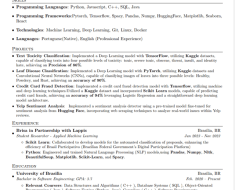The Emergence of Large Language Models in Law
Technological advancements have always had a profound impact on various industries, and the legal profession is not an exception. One of the most recent and important developments in the field of law is the emergence of large language models (LLMs), such as Generative Pretrained Transformer (GPT). These advanced artificial intelligence (AI) models have the potential to drastically change how legal work is conducted, particularly in areas such as contract review and generation.
Comparing LLMs and Lawyers
A significant comparison is drawn between LLMs and traditional legal contract reviewers, such as junior lawyers and legal process outsourcers. The question arises – can these AI models outperform humans in accuracy, speed, and cost efficiency during contract review? Empirical analysis suggests that advanced LLMs can match or even exceed human accuracy in identifying legal issues. Moreover, they can complete reviews in mere seconds, and operate at a fraction of the cost, thereby offering a 99.97 percent reduction in cost over traditional methods.
Potential Impact and Challenges
While the capabilities of LLMs are impressive, their use also raises important questions and concerns. One of the key limitations of LLMs like GPT is in having conversations about contracts and the legal liability of providing incorrect answers. This raises the question – would having a repository of well-reviewed contracts be more useful than training a language model to generate them? The potential impact of automation through LLMs on the legal profession is substantial, and parallels can be drawn with the architectural industry and other sectors that have been transformed by technology.
Legal Compliance and Ethical Considerations
As with any technological innovation, the responsible and compliant use of generative artificial intelligence (GAI) and large language models (LLMs) is paramount. This includes considerations of legal compliance, ethics, privacy, data protection, intellectual property rights, transparency, and accountability. Companies like ComplexDiscovery OÜ are already providing policy statements for the compliant use of GAI and LLMs, emphasizing these factors and outlining clear guidelines for use.
Incorporation of Generative AI in Legal Services
Many legal firms, including some from the Am Law 100, are incorporating generative AI into their legal services and business functions. The decision to either buy generative AI solutions off the rack or develop them internally is a matter of debate. The majority of firms are leaning towards relying on tech vendors with pre-existing clout in the industry, given the cost and technical expertise required to develop large language models.
Conclusion: A New Dawn in Law Practice
The integration of large language models in law signifies a new dawn in legal practice. While the impact of these models is profound, it is important to navigate their use with care, ensuring legal compliance and ethical considerations are maintained. As we continue to explore the potential of LLMs, it is clear that they hold the potential to disrupt the legal industry, enhancing accessibility and efficiency of legal services, and challenging the status quo.


